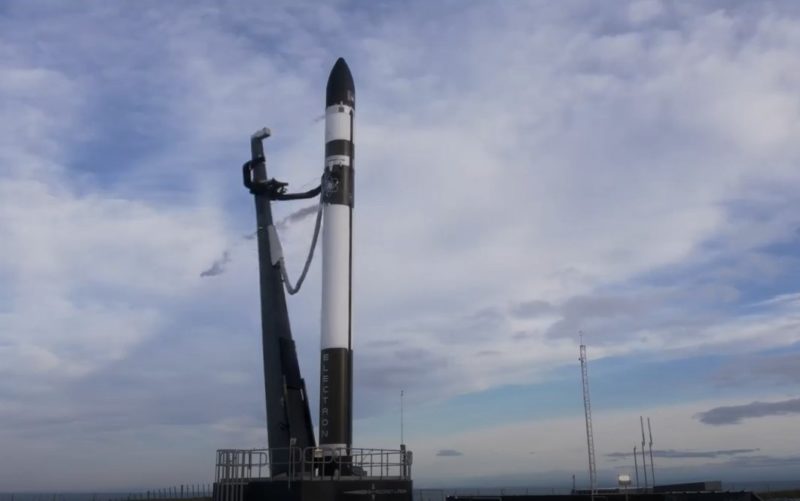Latest News

The Electron rocket for Rocket Lab’s “Pics Or It Didn’t Happen” mission before launch. The mission failed after stage separation. Photo: Rocket Lab
“We were looking at the telemetry and going — ‘This isn’t right. This isn’t right. Something is definitely going wrong,’” said Doug Liddle, CEO of In-Space, recounting what it was like to watch his team’s satellite be lost in real time.
The U.K. startup’s satellite was lost when the Rocket Lab July 4 mission “Pics Or It Didn’t Happen” failed when the Electron vehicle experienced an anomaly after stage separation. The vehicle was lost, and along with payloads for Canon Electronics Inc., and Planet as well.
Liddle said the In-Space team was watching the launch in a Zoom meeting. “It’s a real kick in the teeth, when you’ve put in a couple of really hard years [of] work to get to that point, and it was quite a clever satellite,” he said.
In-Space’s Faraday-1 satellite was the first demonstration of its managed service for startups who want to supply payloads but not build the satellite themselves. The spacecraft was carrying payloads for Airbus Defence and Space, Kleos Space, Lacuna Space, the Space Environment Research Centre in Canberra, Australia, Canadensys Aerospace, Aeternum, and a major industry player under NDA. In addition, Liddle said it carried a software-defined payload that would allow In-Space to reprogram the satellite in orbit, with the intention of eventually allowing customers to upload payloads after launch.
Liddle said In-Space’s team of space industry veterans had never experienced a launch failure before, and at first they weren’t sure what the impact would be for their startup. He said In-Space did not have rebuild or relaunch insurance coverage with Rocket Lab, and In-Space will be responsible for the funds to rebuild.
Now, In-Space is working with its payload customers to figure out how to move forward. The team was planning to put up another satellite in the middle of 2021, and Liddle said they will likely move it forward in 2021, turn into a refight, and launch a second satellite toward the end of 2021. In-Space is also working on another two satellites for a commercial customer that will be launched late next year, and its Faraday-2 satellite for 2022.
“Following a launch failure, you get all of these messages on social media and everyone’s saying, ‘Oh it’s fine, we’ll bounce back.’ And that’s not how we felt at all,” Liddle said. “You take a day or two to process and to figure out how you’re going to get your business back on track. When we went through the numbers, our plan was robust enough to deal with this.”
A representative for Rocket Lab said the team is still working through the investigation of the anomaly. The representative said that payload providers typically insure their own spacecraft, and Electron’s insurance information is commercially sensitive.
Canon Electronics said in a statement to Via Satellite that they are planning to launch again with Rocket Lab. “We are deeply upset that our satellite could not reach orbit due to issues with the rocket. However, we believe that Rocket Lab will identify the cause and overcome the problem and as soon as they are ready for the next flights, we will launch our third satellite with them,” the company said.
In addition, Five Planet SuperDove satellites were lost on the launch. Planet put out a statement that the company has 26 SuperDoves, Flock 4v, slated for launch on a Vega rocket later this summer, and several other launches planned over the next year. “While it’s never the outcome that we hope for, the risk of launch failure is one Planet is always prepared for,” the company said.
Get the latest Via Satellite news!
Subscribe Now